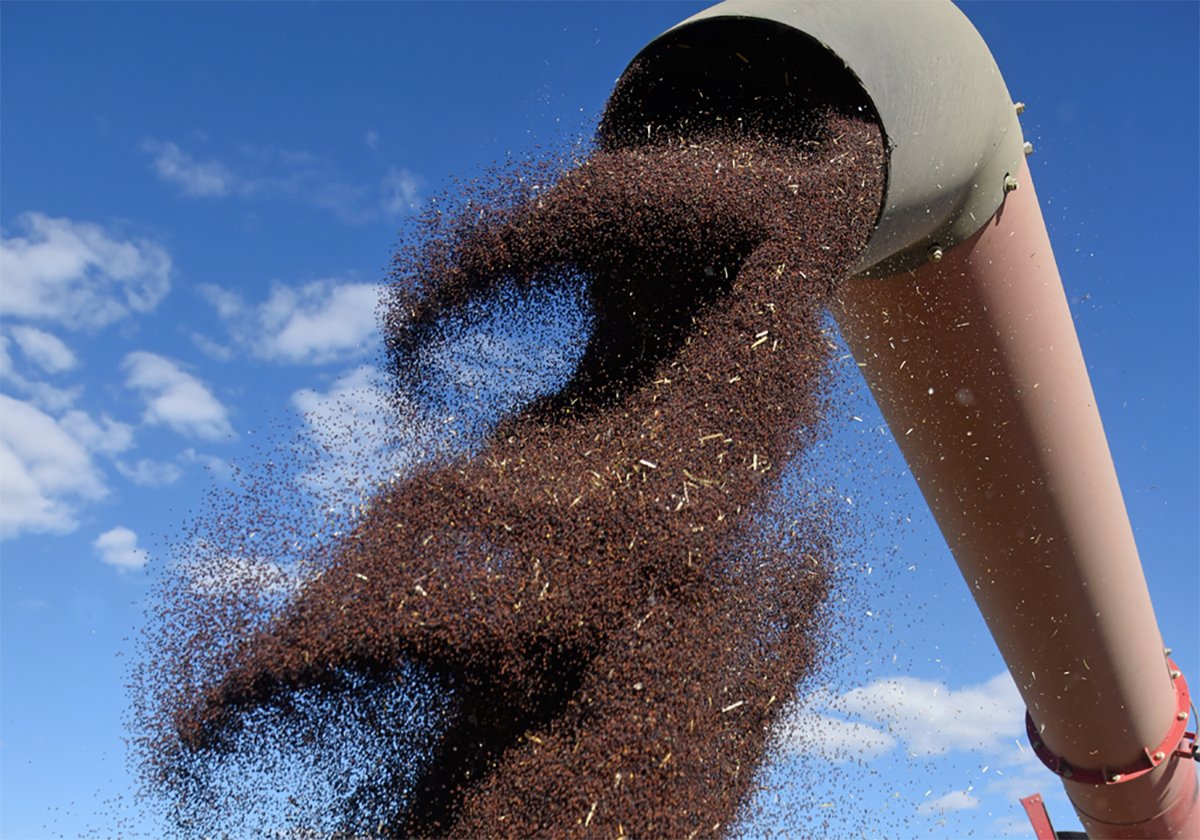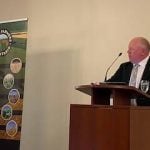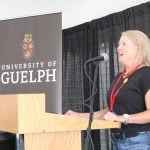SASKATOON – If there is one thing candidates for the leadership of the federal New Democratic Party agree on, it is that they are trying to inherit a party in crisis.
The point was made over and over again as the four contenders – Herschel Hardin, Alexa McDonough, Lorne Nystrom and Svend Robinson – made a mid-campaign pitch for support in Saskatoon.
“We are a party in crisis,” said Robinson, a 16-year House of Commons veteran from Vancouver. “We have never been more invisible, more silent.”
Read Also

Ag minister says tariff situation with China is fragile, volatile
Agriculture ministers from across Canada said they heard canola producers’ concerns about tariffs but it seems unlikely they can do much about them.
Former Nova Scotia NDP leader McDonough said her history of rebuilding the provincial party qualifies her for the national challenge. “We are in a crisis and a party in crisis needs a leader with clear leadership skills.”
Added former Saskatchewan MP Nystrom: “The next couple of years is a make-or-break period for the NDP.”
The cause of all this hand-wringing is obvious.
The 1993 election devastated the party. From a historic high of 43 seats in 1988, the NDP fell to nine MPs and just seven percent of the popular vote.
It lost its official party status in the House of Commons and with it, the visibility of a prominent place in daily Question Period and seats on Commons committees.
In Parliament, its MPs are viewed as Independents.
McDonough argues the malaise is much deeper than visibility.
She said the party’s policy base and creativity have stagnated under leader Audrey McLaughlin during the past five years.
The leadership race was supposed to change that.
Feel for what is to come
The four candidates have crisscrossed the country. After hearing the various pitches, more than 20,000 party members voted in primaries that carry no legal weight at the convention in Ottawa this weekend but which offer a glimpse of grassroots loyalties. Robinson won the British Columbia, Ontario and Quebec primaries, McDonough the Atlantic, and last week Nystrom was expected to win the prairie vote.
In a campaign that occasionally has become personal and bitter, candidate appeals for support have been differentiated more by style than by content.
For Nystrom, it has been a promise of hard work, a full employment policy and an aggressive challenge to the governing right wing.
For Robinson, it has been a promise of coalition-building, more visibility and an agenda that stresses social, environmental and human rights activism.
From McDonough have come promises of reduced interest rates, worker rights, tax reform and a rebuilt party.
Hardin, considered even by the other candidates as the “ideas” candidate but with virtually no chance of winning, has been promoting economic renewal, more equality, and a public sector willing to challenge the power of media, corporations and technology.
Rather than provoking a lively debate among candidates over alternative policy proposals as the new primary system was designed to do, the campaign has become the focus of speculation inside and outside the party about whether the party is still relevant with answers to contemporary problems.
“The disastrous results federally last time and in Ontario has raised doubts about whether the party still is viable on a pan-Canadian basis,” said University of Toronto political scientist and longtime NDP luminary Mel Watkins. “I don’t think there has been a time in my life that has been so unrelentingly right wing.
“I think the issue now, the fundamental challenge, is jobs,” Watkins said. “How do you reconcile the fact that those with jobs are working longer hours while so many are without jobs? I think redistribution of work is an area in which we can be creative.”














